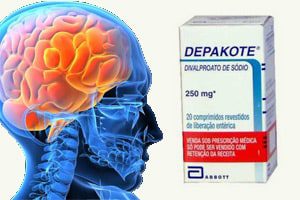
Following approval by the U.S. Food and Drug Administration (FDA), Dr. Reddy’s Laboratories just announced that it has launched a new generic medication: Divalproex Sodium Extended-Release Tablets, USP (250 mg and 500 mg). Divalproex is the medication equivalent of Depakote(R) ER (divalproex sodium) Tablet, Extended. Depakote, and now Divalproex, are in a class of drugs […]
 Following approval by the U.S. Food and Drug Administration (FDA), Dr. Reddy’s Laboratories just announced that it has launched a new generic medication: Divalproex Sodium Extended-Release Tablets, USP (250 mg and 500 mg). Divalproex is the medication equivalent of Depakote(R) ER (divalproex sodium) Tablet, Extended.
Following approval by the U.S. Food and Drug Administration (FDA), Dr. Reddy’s Laboratories just announced that it has launched a new generic medication: Divalproex Sodium Extended-Release Tablets, USP (250 mg and 500 mg). Divalproex is the medication equivalent of Depakote(R) ER (divalproex sodium) Tablet, Extended.
Depakote, and now Divalproex, are in a class of drugs known as anti-epileptic drugs—AEDs—which are known to contain additional risks to developing fetuses to those indicated on current drug product labeling. AEDs include the brands Tegretol, Carbatrol, Equetro, Epitol, Lomotrigine, and Depakote. The active ingredient in Depakote is valproate.
The new generic version of Depakote is available in bottle count sizes of 100 and 500 pills. Labeling indicates a warning for life-threatening adverse reactions that include hepatotoxicity, including fatalities, which usually occur during the first six months of treatment; that children under the age of two are at significantly increased risk of deadly hepatotoxicity; and that patients should be closely monitored, including with liver function testing prior to therapy and, at frequent intervals during treatment. The label also warns of fetal risk, specifically neural tube defects and major malformations, as well as pancreatitis, including involving fatal hemorrhagia.
Two recent studies confirm prior research findings concerning valproate and birth defects. The first study was published in the Journal of Neurology, Neurosurgery & Psychiatry and revealed an increased risk of neurodevelopmental disorders in children exposed to valproate; autistic spectrum disorder (ASD) was the most frequent diagnosis. The second research was published in the journal, Acta Neurologica Scandinavica, and revealed “statistically significant associations between valproate exposure and spina bifida, malformations of the heart and larger vessels, as well as digits, skull bones, and the brain…. The valproate findings are mostly in keeping with the published literature.”
Prior Danish research found that AEDs are associated with significantly increased risks for low birth weight, pre-term birth, and smaller-than-normal head circumference in babies born to women who take AEDs when pregnant. After adjusting for so-called “confounders,” the adverse birth outcomes—which the team concluded were significantly more common in AED births when compared to births in which AEDs were not involved—were gestational age, lower by 0.92 days; birth weight, Lower by 31.96 grams; and head circumference, smaller by 0.07 centimeters. Other prior Danish research revealed additional evidence that fetal exposure to Depakote, specifically to valproate, increases a baby’s risk of developing an ASD three-fold.
Another study found that babies born to mothers exposed to AEDs during pregnancy were likelier to receive abnormal scores on motor development and autism traits testing. These findings, noted MedPageToday previously, add to existing research that ties epilepsy drugs to congenital defects. The research was published online in Epilepsia. “Exposures to valproate, lamotrigine, carbamazepine, or multiple antiepileptic drugs were associated with the adverse outcome within different developmental domains,” the authors wrote.
Depakote, approved for the prevention of migraines, treating acute manic episodes in bipolar patients, and halting seizures in adults and children, has been associated with birth defects when taken by pregnant women. In fact, 26 women filed lawsuits claiming that the makers of Depakote illegally marketed the drug for off-label purposes and failed to warn of the side effects of the drug. Each of the women claimed they were prescribed and took Depakote just before becoming pregnant, or during the first trimester of their pregnancy, and that the drug caused them to give birth to children with a wide array of severe, some life-threatening, birth defects.


